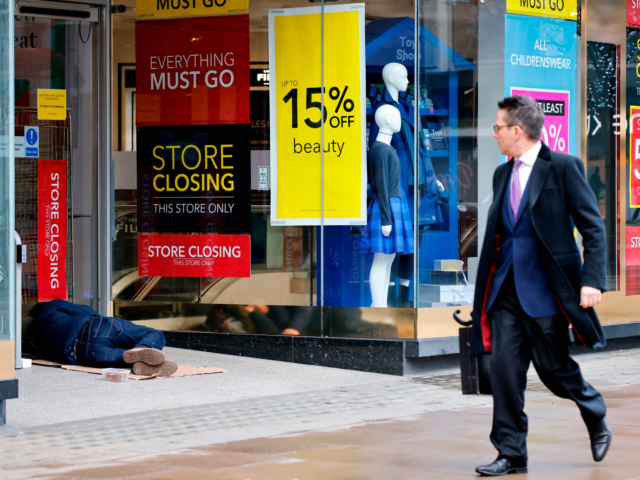The inflation rate in Britain has hit the highest level in a decade as the cost of living has soared as a result of rising energy prices.
The Office for National Statistics (ONS) reported on Wednesday that the Consumer Prices Index rose by 3.8 per cent in the year leading up to October, jumping sharply from 2.9 per cent in the year up to September. The figures mean that the inflation rate has hit its highest level since November of 2011.
The ONS said that the increase in inflation has come as a result of the coronavirus lockdowns in 2020, however, it was also driven by spiralling energy costs after the government’s Office of Gas and Electricity Markets (Ofgem) lifted caps on the price of energy.
The price of energy has risen by 28.1 per cent over the past year, alone. As part of that, electricity costs have increased by 18.8 per cent. Petrol prices also climbed by 25.4p, surging to £1.40 per litre.
The inflation spike has hit householders particularly hard, with considerable rises seen in the prices of domestic energy, food, transportation, and education.
Commenting on the rise in inflation, ONS chief economist Grant Fitzner said: “This was driven by increased household energy bills due to the price cap hike, a rise in the cost of second-hand cars and fuel as well as higher prices in restaurants and hotels.
“Costs of goods produced by factories and the price of raw materials have also risen substantially, and are now at their highest rates for at least 10 years.”
Chancellor Rishi Sunak said: “Many countries are experiencing higher inflation as we recover from COVID, and we know people are facing pressures with the cost of living, which is why we are taking action worth more than £4.2bn to help them.
“We’re helping people get into work, progress and keep more of what they earn, through our Plan for Jobs and by effectively cutting taxes for workers receiving Universal Credit.
“We are also providing more immediate support, including through the £500m Household Support Fund for the most vulnerable families, fuel and alcohol duty freezes, and the energy price cap.”
The Consumer Prices Index including owner occupiers’ housing costs grew 3.8% in the year to October 2021.
This is up from the 2.9% growth in year to September 2021 https://t.co/nm5YIaBms8 pic.twitter.com/jS2T0QEFrD
— Office for National Statistics (ONS) (@ONS) November 17, 2021
The report has thrown into question the Bank of England’s decision last month to keep interest rates low, projecting that inflation would remain at around 2 per cent. The Bank, therefore, may be forced to raise interest rates in December in response to the higher than expected inflation rate, potentially bad news for mortgage-holders.
Chief Economist at KPMG UK, Yael Selfin said: “While not unexpected, confirmation that inflation is moving further away from its 2% target may seal the Bank of England’s resolve to raise rates in December, following the strong labour data released this week.”
The Bank of England has said that it did not want to raise interest rates until it could measure the job market upon the completion of the furlough scheme, in which the government has essentially been paying the wages of millions of Britons during the Chinese coronavirus crisis.
The governor of the bank, Andrew Bailey said on Wednesday that he was “very uneasy” by the jump in inflation, with the BoE currently projecting a peak of five per cent by next spring.
On top of a rising cost of living, Britons are set to see their bank balances shrink even further as the Conservative government of Prime Minister Boris Johnson is set to increase taxes to a seventy year high, despite vowing to not raise taxes prior to the previous general election.
The inflation surge has also been witnessed in the United States, with the cost of energy yet again leading to the increase. President Joe Biden and Prime Minister Boris Johnson — both of whom have used the Great Reset slogan ‘Build Back Better’ — have been at the forefront of attacks on the fossil fuel industry in favour of supposedly more environmentally friendly green alternatives.
On Tuesday, former Obama administration economic advisor Larry Summers warned that inflation is “threatening to become a spiral,” adding that “it’s going to be very expensive and very costly to put the inflation genie back in the bottle.”
Own Nothing and Be Happy: British Banks Could Buy Up 1.75 Million Homes by 2031 https://t.co/uLHWCqR7Wm
— Breitbart London (@BreitbartLondon) August 30, 2021
Follow Kurt Zindulka on Twitter here @KurtZindulka

COMMENTS
Please let us know if you're having issues with commenting.